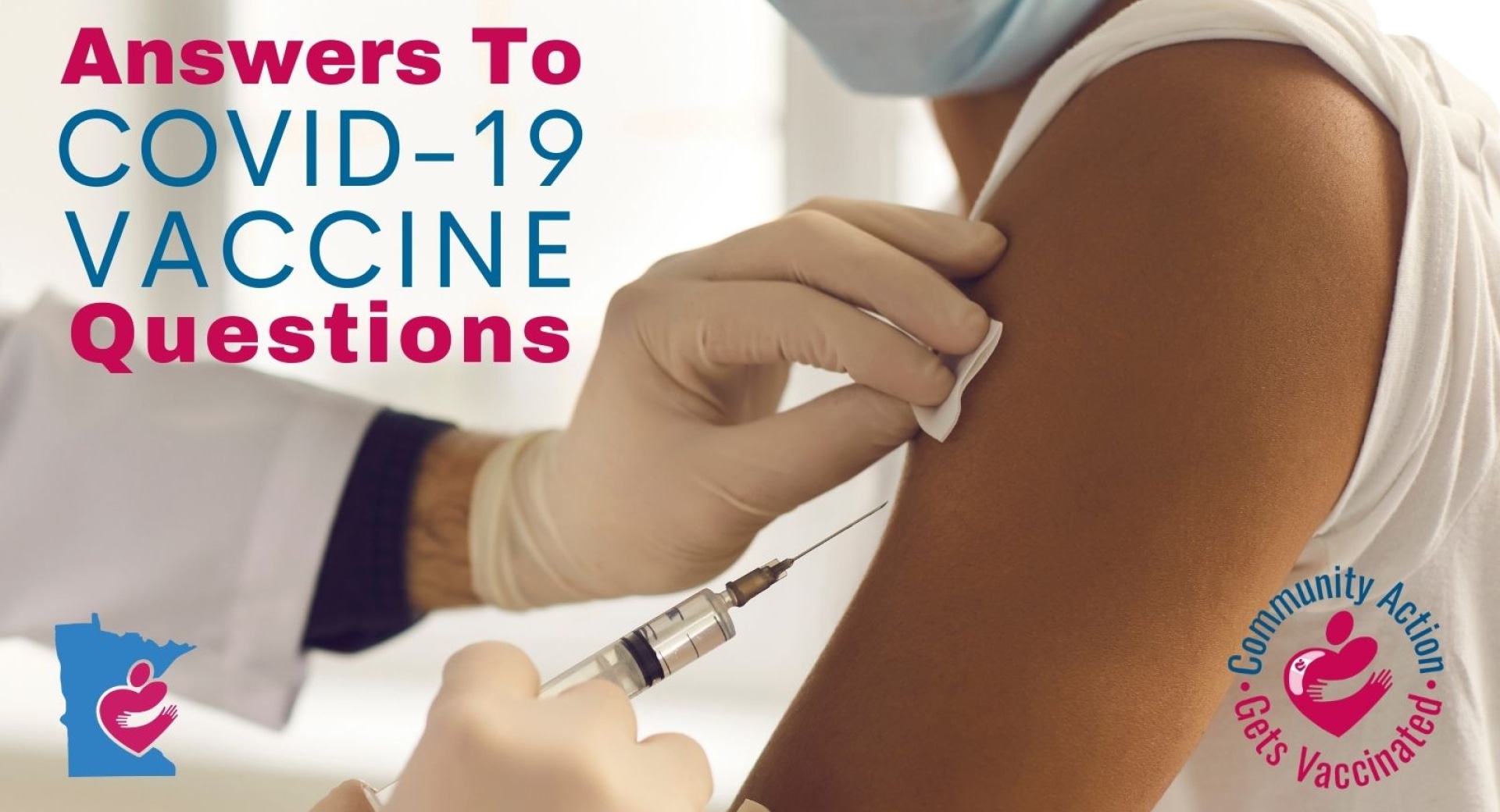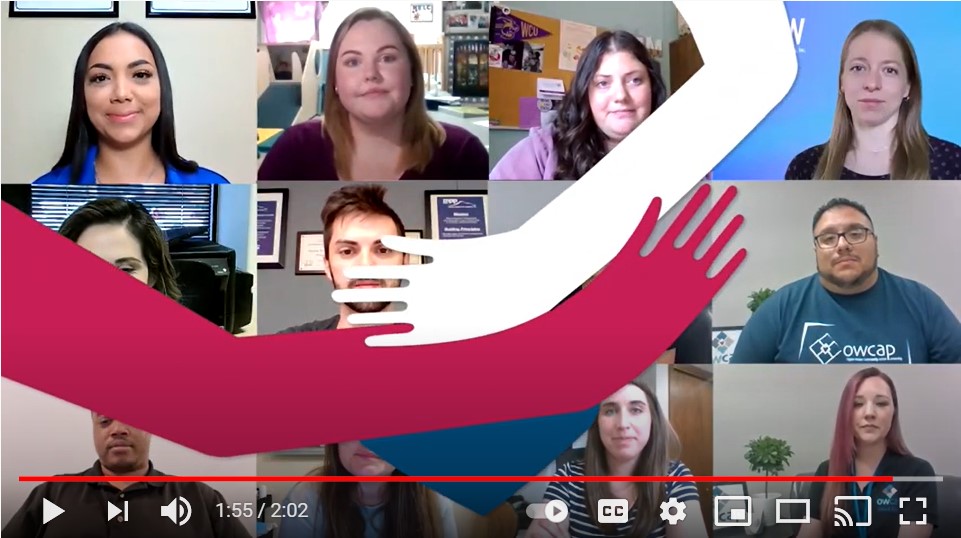
Community Action answers common questions about COVID-19 Vaccine and encourages vaccination
With the highly contagious Delta variant of COVID-19 leading to more hospitalizations in the United States and the FDA approval this week of the Pfizer-BioNTech COVID-19 vaccine, now is the time to make an informed decision about getting vaccinated against the virus.
COVID-19 vaccines are free and widely available in the U.S. Everyone 12 years of age and older is eligible to get a COVID-19 vaccination. As we close out August – National Immunization Awareness Month – and kids head back to school, Community Action encourages everyone who is eligible to get a COVID-19 vaccine to slow the spread of the virus in our communities and protect those who cannot yet be vaccinated (kids under 12 and those with exempting medical conditions).
Answers to Common COVID Vaccine Questions
These are excerpts from the COVID Collaborative – a partnership with the Ad Council and Centers for Disease Control. Find more information and additional answers to many more questions here: www.getvaccineanswers.org.
Q: How do the COVID-19 vaccines protect me?
A: When we get a vaccine, it activates our immune response. This helps our bodies learn to fight off the virus without the danger of an actual infection. If we are exposed to the virus in the future, our immune system “remembers” how to fight it. All authorized COVID-19 vaccines provide strong protection against serious illness and hospitalization due to COVID-19.
The Moderna and Pfizer vaccines use messenger RNA, or mRNA. mRNA vaccines do not contain a live virus. They give our bodies “instructions” for how to make and fight the spike-shaped proteins that will protect against a COVID-19 infection. While these vaccines use new technology, researchers have been studying them for decades.
Johnson & Johnson’s Janssen vaccine is a viral vector vaccine and also does not contain a live virus. It uses a harmless adenovirus to create a spike protein that the immune system responds to, creating antibodies to protect against COVID-19.
None of these vaccines can give you COVID-19.
It takes time for your body to build immunity after vaccination, so you won’t have full protection until 2 weeks after your final dose.
Q: How do I know the vaccines are safe?
A: More than 150 million people in the United States, including 96% of medical doctors, are now fully vaccinated against COVID-19. These vaccines have been through the most intensive safety monitoring in U.S. history.
Vaccines are approved and authorized by the U.S. Food and Drug Administration (FDA), including full approval for the Pfizer vaccine (Comirnaty) which was granted in August 2021. The FDA sets strict standards for clinical trials and carefully reviews scientific data from vaccine developers. Once vaccines are made available to the public, the FDA continues to monitor them very closely.
Researchers began developing vaccines for COVID-19 in January 2020, based on decades of work on immune responses and vaccine technology. Thousands of volunteers took part in the clinical trials that started that spring to ensure the vaccines are safe and effective.
Based on the results, the FDA authorized multiple vaccines for public use. In December 2020, the FDA authorized the Moderna and Pfizer-BioNTech vaccines for the American public. Johnson & Johnson’s Janssen vaccine was added in February 2021 and is currently available for use in the United States after a pause in April 2021. In August 2021, the Pfizer vaccine (Comirnaty) became the first vaccine to be fully approved by the FDA based on extensive data on safety and effectiveness.
Doctors and medical experts with many years of experience regulating vaccines looked at information about the safety, effectiveness, and quality of the vaccines before making their decision.
After a vaccine is approved or authorized by the FDA and made available to the public, experts continue to closely monitor it for safety and to help us learn more about questions like how long vaccines provide protection.
Q: What are the benefits of getting vaccinated?
A: Studies show that COVID-19 vaccines are effective at preventing you from getting COVID-19. Being vaccinated also helps keep you from getting seriously ill even if you do get infected. So far, studies suggest that the vaccines authorized by the FDA are also effective against variants such as the Delta variant.
Protecting yourself protects those around you, such as people at increased risk of severe illness from COVID-19. It also protects those who can’t get vaccinated, including infants, or people with immune systems weakened by things like chemotherapy for cancer.
Getting Vaccinated – Additional Resources
Watch >> Stories from Community Action Young Professionals about getting Vaccinated


